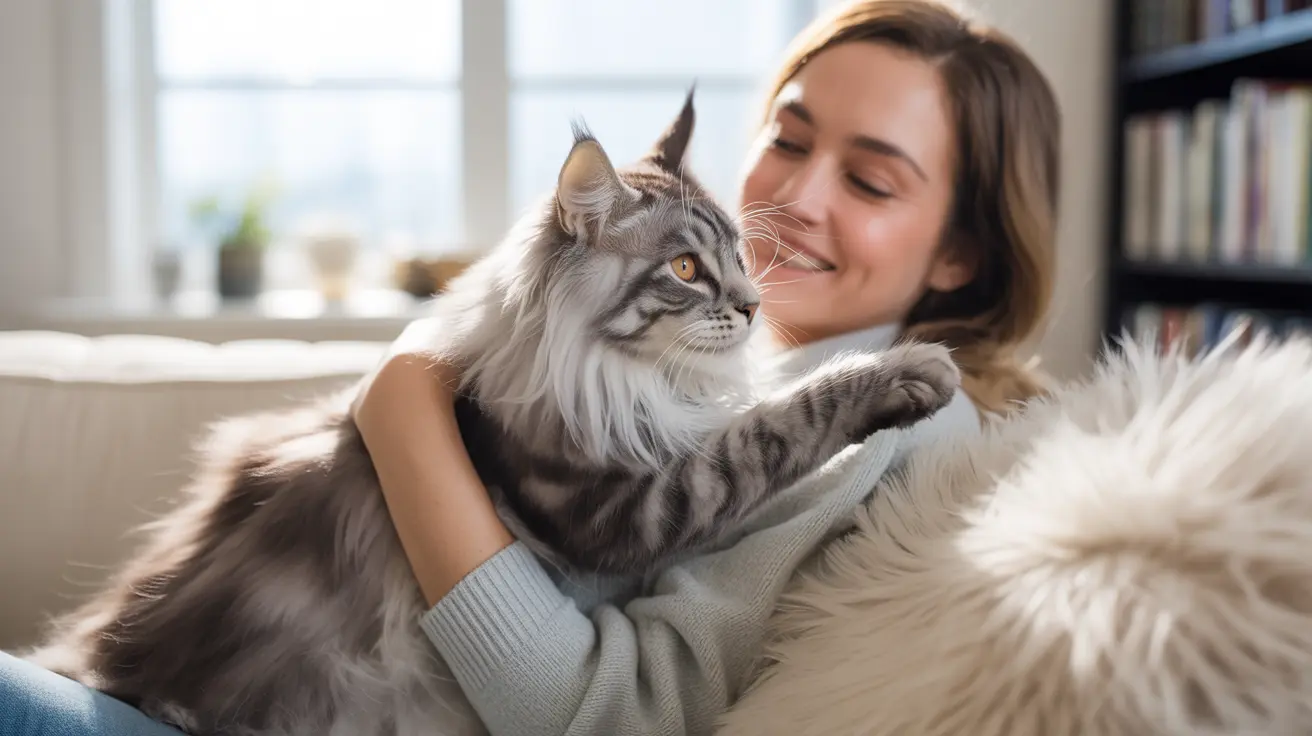If you're a cat owner, you've likely experienced your feline friend gently bumping their head against you. This endearing behavior, known as "bunting," is more than just a cute gesture – it's a complex form of communication that reveals much about your relationship with your cat and their emotional state.
Let's explore the fascinating reasons behind this unique behavior and what your cat is trying to tell you when they offer these gentle head bumps.
The Science Behind Cat Headbutting
When cats headbutt, they're actually engaging in an important scent-marking behavior. Cats have special scent glands located on their foreheads, cheeks, and chin that release pheromones. These chemical signals, while undetectable to humans, play a crucial role in feline communication.
During headbutting, cats deposit these pheromones onto people and objects they consider important in their territory. This creates a familiar, comforting environment that helps them feel secure and connected to their surroundings.
Primary Reasons Your Cat Headbutts You
Showing Trust and Affection
When your cat headbutts you, they're displaying one of the highest forms of feline affection. By presenting their head – a vulnerable part of their body – they're demonstrating complete trust in you. This gesture is typically reserved for their most trusted companions, both feline and human.
Marking Their Territory
Through headbutting, cats claim you as part of their family group by transferring their unique scent onto you. This behavior helps create a shared group scent, which is particularly important in multi-cat households where establishing a communal identity helps maintain harmony.
Requesting Attention
Cats often use headbutting as a gentle way to seek interaction. Whether they're hoping for food, playtime, or simply some affection, this polite gesture is their way of initiating communication with their human family members.
How to Respond to Cat Headbutting
When your cat offers a headbutt, the best response is gentle acknowledgment. You can:
- Softly pet their head or chin
- Return the gesture with a gentle lean (if your cat is comfortable with this)
- Speak to them in a soft, loving tone
- Simply pause what you're doing and give them a moment of attention
Remember that forcing interaction can break trust, so always let your cat initiate and control these moments of connection.
When to Be Concerned
While headbutting is typically a positive behavior, sudden changes in frequency or intensity might warrant attention. If your cat's headbutting becomes excessive or is accompanied by other unusual behaviors, it's wise to consult with your veterinarian to rule out any underlying health issues.
Frequently Asked Questions
What does it mean when my cat headbutts me—is it a sign of affection or something else?
Cat headbutting is primarily a sign of affection, trust, and social bonding. Your cat is marking you with their scent and claiming you as part of their family group while showing that they feel safe and comfortable with you.
Why do cats use headbutting (bunting) to mark their owners with scent?
Cats use scent marking through headbutting to create a familiar environment and establish a shared group scent. This behavior helps them feel secure and helps other cats recognize you as part of their social circle.
How can I tell if my cat's headbutting is a normal bonding behavior or a sign of illness?
Normal headbutting is gentle and usually accompanied by other positive body language like purring or relaxed posture. If the behavior becomes excessive, aggressive, or is paired with unusual symptoms like disorientation or lethargy, consult your veterinarian.
What should I do when my cat headbutts me—how can I respond to deepen our bond?
Respond with gentle attention, such as soft petting or quiet verbal acknowledgment. Avoid overwhelming reactions, and let your cat guide the interaction's duration and intensity.
Can a cat's headbutting behavior indicate dominance or a request for attention?
While headbutting can sometimes be used to seek attention, it's rarely about dominance. It's primarily a friendly social behavior used to strengthen bonds and communicate needs or affection.
Understanding your cat's headbutting behavior helps strengthen your bond and ensures you're responding appropriately to their communication attempts. This special gesture is one of the many ways cats show their trust and affection, making it an important part of the human-feline relationship.






